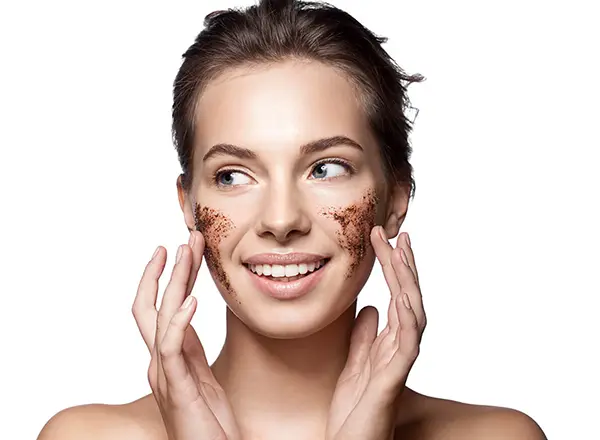Who doesn’t dream of having that radiant, glowing skin we see on magazine covers? Achieving a healthy, luminous complexion may seem like a daunting task, but with the right skincare routine, it’s more attainable than you think. Whether you’re a skincare novice or a beauty enthusiast, these seven skincare tips for glowing skin will help you achieve that coveted glow. Ready to get your skin shining like the sun? Let’s dive in!
Table of contents
7 Skincare Tips for Glowing Skin
1. Hydrate, Hydrate, Hydrate
One of the most overlooked aspects of skincare is hydration. Drinking enough water is crucial for maintaining your skin’s elasticity and suppleness. Water helps to flush out toxins from your body, keeping your skin clear and hydrated. Among the essential practices in “7 Skincare Tips for Glowing Skin,” proper hydration stands out as a fundamental step for achieving and maintaining a radiant complexion.
How to Keep Skin Hydrated
- Drink Plenty of Water: Aim for at least 8 glasses a day to keep your skin hydrated from the inside.
- Use a Hydrating Serum: Look for serums with hyaluronic acid, which can hold up to 1000 times its weight in water.
- Moisturize Daily: Choose a moisturizer suited to your skin type to lock in hydration.
How Much Water Should You Drink?
Aim to drink at least 8 glasses of water a day. If you have a busy lifestyle, carrying a reusable water bottle can remind you to stay hydrated throughout the day.

2. Cleanse Your Skin Properly
Choosing the Right Cleanser
Cleansing is the foundation of any good skincare routine and a crucial step in Skincare Tips for Glowing Skin. It removes dirt, oil, and makeup that can clog pores and lead to breakouts. But not all cleansers are created equal. Choose a cleanser that suits your skin type—gel cleansers for oily skin, cream cleansers for dry skin, and foaming cleansers for normal to combination skin.
Double Cleansing Method
Consider incorporating the double cleansing method into your routine. Start with an oil-based cleanser to remove makeup and sunscreen, followed by a water-based cleanser to cleanse the skin thoroughly.
3. Exfoliate Regularly
The Importance of Exfoliation
Exfoliation helps to remove dead skin cells that can make your skin look dull and tired. It also promotes cell turnover, which is essential for glowing skin.
Types of Exfoliation
- Physical Exfoliation: Uses scrubs or brushes to manually remove dead skin cells.
- Chemical Exfoliation: Uses acids like AHAs (alpha hydroxy acids) and BHAs (beta hydroxy acids) to dissolve dead skin cells.
How Often to Exfoliate
For most skin types, exfoliating 1-2 times a week is sufficient. Over-exfoliation can irritate the skin and cause redness.

4. Moisturize Daily
Finding the Right Moisturizer
No matter your skin type, moisturizing is a must. It helps to lock in hydration and protect the skin barrier. If you have oily skin, opt for a lightweight, non-comedogenic moisturizer. For dry skin, choose a richer, cream-based moisturizer. Incorporating moisturizing into your routine is one of the essential skincare tips for glowing skin.
The Benefits of Night Creams
Don’t skip your night-time moisturizer. Using a night cream can help repair and rejuvenate your skin while you sleep, making it an essential step in your skincare routine.
5. Protect Your Skin from the Sun
The Necessity of Sunscreen
Sunscreen is non-negotiable if you want glowing skin. The sun’s UV rays can cause premature aging, dark spots, and increase the risk of skin cancer. Incorporating sunscreen into your daily routine is one of the essential skincare tips for glowing skin.
How to Use Sunscreen
Apply a broad-spectrum sunscreen with at least SPF 30 every morning, even on cloudy days. Don’t forget to reapply every two hours if you’re spending time outdoors.
How to Protect Your Skin
- Use Sunscreen: Apply a broad-spectrum sunscreen with at least SPF 30 every day, even on cloudy days.
- Wear Protective Clothing: Hats, sunglasses, and long sleeves can provide additional protection.
- Seek Shade: Avoid direct sun exposure during peak hours, usually between 10 AM and 4 PM.

6. Incorporate Antioxidants
Antioxidants protect your skin from free radicals, which can damage your skin cells and accelerate aging. Vitamin C is a potent antioxidant that brightens skin and boosts collagen production. Incorporating antioxidants into your skincare routine is one of the essential Skincare Tips for Glowing Skin.
Using Antioxidant Serums
Incorporate a vitamin C serum into your morning routine after cleansing and before moisturizing. This will help protect your skin throughout the day and enhance your natural glow.
7. Get Enough Sleep and Maintain a Balanced Diet
Your skin repairs itself while you sleep, so getting enough rest is crucial for glowing skin. Aim for 7-9 hours of quality sleep each night.
Creating a Night-Time Routine
Create a relaxing bedtime routine to help you unwind and improve your sleep quality. This can include activities like reading, taking a warm bath, or practicing mindfulness.

The Role of Nutrition in Skincare
What you eat can significantly impact your skin’s health. A balanced diet can promote a clear, radiant complexion. Incorporating these Skincare Tips for Glowing Skin into your daily habits can enhance your overall skin health and give you that sought-after glow.
Foods for Glowing Skin
- Antioxidant-Rich Foods: Berries, leafy greens, and nuts can protect your skin from damage.
- Healthy Fats: Avocados, fish, and nuts provide essential fatty acids that keep your skin hydrated and supple.
- Vitamins and Minerals: Incorporate foods rich in vitamins A, C, and E, as well as zinc, to support skin health.
Conclusion
Achieving glowing skin doesn’t have to be complicated. By following these seven skincare tips for glowing skin, you can enjoy a radiant complexion all year round. Remember, consistency is key, and listening to your skin’s needs is essential. So, start incorporating these tips into your routine and get ready to shine!
FAQs for Skincare Tips for Glowing Skin
1. How often should I exfoliate my skin?
It’s best to exfoliate 1-2 times a week, depending on your skin type and sensitivity. Over-exfoliation can lead to irritation and damage, so it’s important to find a balance.
2. Can I skip moisturizer if I have oily skin?
No, even oily skin needs hydration. Choose a lightweight, non-comedogenic moisturizer that won’t clog your pores.
3. What’s the best way to apply sunscreen?
Apply sunscreen as the last step in your morning skincare routine for glowing skin. Use about a teaspoon for your face and a shot glass worth for your body. Reapply every two hours when exposed to sunlight.
4. Are natural ingredients better for skincare?
Natural ingredients can be beneficial, but it’s essential to use products that are formulated correctly and suit your skin type. Always do a patch test before trying a new product.
5. How long does it take to see results from a new skincare routine?
Results can vary, but typically you should start to see improvements in 4-6 weeks. Consistency and patience are key to achieving glowing skin.



